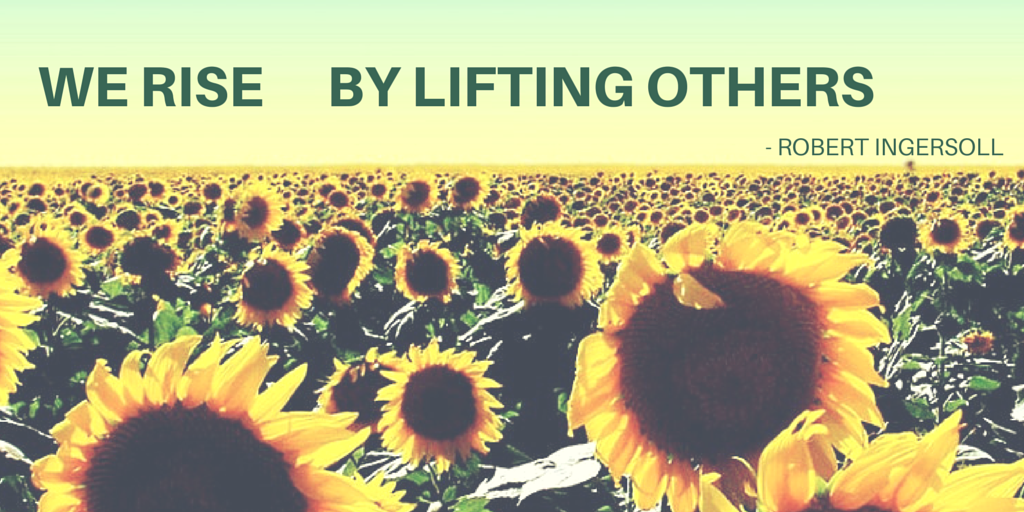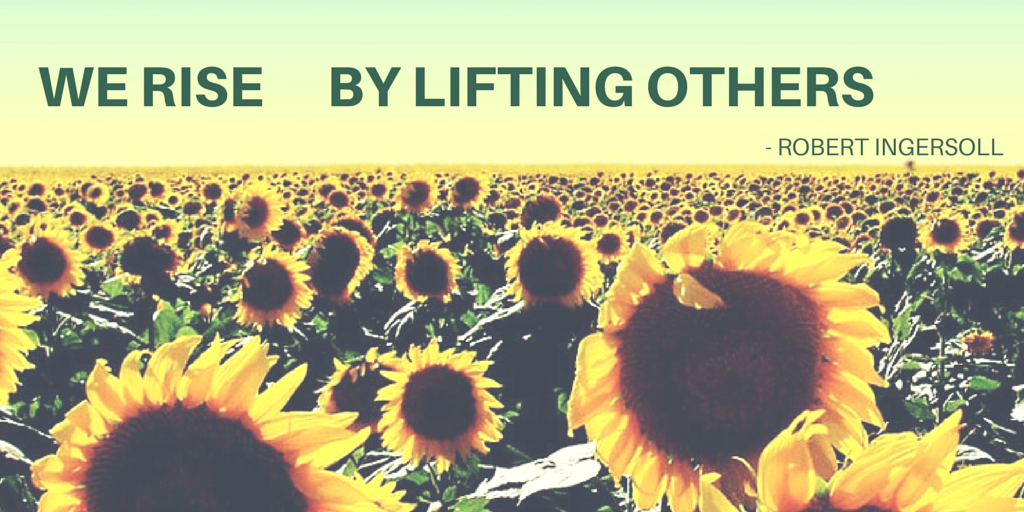While on a short run, I was listening to the audiobook version of Naomi Klein’s “The Shock Doctine“, and suddenly, the reader said, “You have now reached the end of the conclusion. We hope you enjoyed listening to Naomi Klein’s The Shock Doctrine!” I was stunned that this book, which was packed with so much information that spanned decades and crossed the globe, was already finished. And while I couldn’t possibly say that “I enjoyed” my time reading, as I was alternately racked by guilt, horror, rage, and a terrible sadness while reading, I can certainly say that I found it was a worthwhile, nay, necessary read.
While I’m still digesting the horror of the implications of that book, I found there was a note at the end that gave me hope:
“The best way to recover from helplessness turns out to be helping – having the right to be a part of communal recovery.”
In this instance, the author is discussing how certain communities took it upon themselves to rebuild their neighborhoods after natural devastation, often marching past the governmental guards/private security personnel set up to keep them out, and how those communities felt empowered by taking part in the rebuilding and reclaiming of their identities. This communal effort used to be a natural part of recovery for areas devastated by disasters, as it allowed the individuals to recover, heal, and be given purpose or focus, but now, these disasters are seen increasingly as “an opportunity” by governments and corporations, and the land is parceled up, contractors hired to “reshape” (rather than “rebuild” – that’s an important distinction) the land, and the former residents are left on the sidelines, watching and waiting for a sense of normalcy that often never returns.
I feel like right now, as we feel helpless in the face of the hate and anger we’re seeing, we have to help. Somehow, we have to find a way to help. Help rebuild our communities. Help build up our children, our friends, our family, our neighbors, and our communities. In whatever way you can, big or small, help.
To expand on something I wrote when I shared my sister’s post “You Are Mighty” – together we are mighty.
Together, we rise.


Yes, yes, yes!
I saw your texts in the middle of the night. They made me smile, because I remembered feeling pretty much crushed through most of the book (though grateful, certainly, for the knowledge) … and then reaching the end and going, “Hope!”
I had the sense even before I began reading the book that hope was in what we do for each other, but that book confirmed it. Early on, the paragraph that explained how jailers denied small acts of kindness between prisoners just … hit me, because it affirmed this innate understanding: we are strong in (and jailers are scared of) our together.
Then, the end of TSD completely affirmed that. I take such hope knowing that CELAC is out there. Those Latin American countries have rejected the US that sought to destroy them for its own benefit, and they’ve done it by … union.
Reading Chomsky on lunch yesterday (just a little, thinking of Ramesh!), I read one particular essay that revealed how many countries have slowly begun disentangling thenselves from US dictatorship. I’d seen little signs before I began reading Chomsky, but I didn’t understand them. The disentangling is good for the planet, and may be good for the people of the US, after some bumps in the road.
Driving to work yesterday, I also realized I needed to explain a lesson from TSD to give current “fake news” censorship efforts here context. When one is implementing deeply unpopular fiscal measures, which only benefit a few, the only way they will be accepted by the many are by force. So far, we’ve mostly only seen kind-looking force because those who benefited control the whole narrative. Now that they’re losing the media hold required to obtain control (certainly not informed consent), who knows what’s next? For the sake of the planet, I hope they’ll relinquish their chokehold–their expectation they are owed all the planet’s resources for their might–before long.
Of course, they’ll only do that if people help–and stand for–each other. So, let’s. ♡♡♡
LikeLiked by 2 people
Yes. CELAC gives me hope, too. I reserved two Chomsky books when I finished last night (also thanks to Ramesh!), and reminded myself that I have a channel set up with various interviews with Chomsky. Every time I read his works, or listen to him speak, I feel…hope. Even when he intimates “I can’t tell you everything’s going to be okay – it’s not”, but there’s something about his clarity and belief in people that is simply an inspiration. Thanks!
LikeLiked by 1 person
I’m still on the fence whether I want to read this book or not.
LikeLiked by 1 person
It’s a long read, but it’s certainly outlines the history and gives a perspective of the US role in squashing any anti-capitalistic movements. I’m still processing it and may read it again. My brother tells me there’s a movie, so I’ll check it out and see how it compares.
LikeLiked by 1 person
Ooooo, a movie 🙂 Have to let me know about that and how it measures up.
LikeLiked by 1 person
I will!
LikeLike
I read the transcript of an interview yesterday involving Democracy Now!, Noam Chomsky and Harry Belafonte, and it felt like balm to my troubled heart. There is hope, and we are that hope. We can make the change by becoming the change . . . I know that’s a bromide, but it’s also true. I’ve got a few pages left in Chomsky and Shock Doctrine is next on my list (assuming I can peel it away from my daughter). It’s painful to read these books in a way. I absolutely do feel a lot of what you’re feeling: outrage, indignation, horror, grief, denial . . . but then a sense of peace comes over me. I’m like, okay, this is what it is, but where is the love? I gotta connect to that (that love) and then I can figure out the rest of this.
LikeLiked by 1 person
Yes! I think you hit it on the head. I think, in order to be an accepting society, we can’t turn a blind eye any more to what – and why – our nation is so militarized, and the atrocities of our foreign and domestic policies. Once we have the information, there’s a sense of peace (which you describe so well!) and purpose.
LikeLike
I really liked Klein’s book (I’d say ‘enjoyed’ but that would be a little savage). I did feel terrible while I was reading it but I also felt angry enough to be energised by it. I finished it and then started contacting folks and finding out how I could help and contribute in some small way. I feel like a need a bit of a break before I move on to her climate change book. For my mental wellbeing, largely.
LikeLiked by 1 person
I agree. I felt energized and compelled to action. I’m still trying to find my own way to action and helping, but I’m working on it!
LikeLiked by 1 person
Agreed. I’m getting involved with some organisations that promote Anarcho-Communist/Anarcho-Syndicalist works. That kind of thing isn’t for everyone, I’ll concede. I blame Chomsky’s ‘On Anarchism’ – that opened a whole can of intellectual worms and reading pathways for me.
LikeLiked by 1 person
I’m reading two Chomsky books right now, too! I’ll admit, I’ve joined the Democratic Socialists of America and just started attending a Jacobin reading group, too. My mind has been opened, and I feel like we need to do something to make the world a better place – for everyone.
LikeLiked by 1 person
Noam C. is a joy, isn’t he. A very erudite, spiky joy.
I think you’re right: people who can do something; must. I’ll be reading your blog to see how it’s all going. Keep on keeping on!
LikeLiked by 1 person
Lol! Yes, I love that description! He is an erudite spiky joy indeed!
LikeLiked by 1 person